1. Detroit, Michigan

Once synonymous with the automotive industry, Detroit is reinventing itself as a hub for urban agriculture. The city’s vast expanses of vacant land have been transformed into community gardens and urban farms, producing fresh produce for local neighborhoods. Initiatives like the Detroit Black Community Food Security Network are helping residents access healthy, affordable food.
According to Urban Farming, Detroit is also experimenting with vertical farming, enabling year-round crop production in controlled environments. The city’s commitment to sustainability and food security is positioning it as a leader in urban farming innovation.
2. Singapore

Singapore’s limited land area hasn’t stopped it from becoming a trailblazer in urban farming. The city-state has embraced vertical farming techniques, with high-tech farms like Sky Greens producing leafy greens in towering structures. These systems use minimal water and energy, aligning with Singapore’s sustainability goals.
As noted by The Straits Times, Singapore is also investing in aquaponics and hydroponics to boost local food production. With its innovative approach, Singapore is setting a global example of how densely populated cities can grow their food.
3. Cleveland, Ohio

Cleveland is emerging as a surprising leader in urban farming thanks to initiatives like the Cleveland Urban Agriculture Incubator Program. The city is repurposing vacant lots into thriving agricultural spaces, providing jobs and fresh produce to underserved communities.
According to Cleveland.com, projects like Green City Growers are using hydroponic greenhouses to supply local restaurants and grocery stores. Cleveland’s focus on sustainability and community engagement is transforming its urban landscape.
4. Tokyo, Japan

Tokyo is blending tradition with innovation to lead the urban farming movement. Rooftop farms, such as those atop department stores and office buildings, are becoming a common sight in this sprawling metropolis. These farms provide fresh produce while reducing the city’s carbon footprint.
As reported by Japan Times, Tokyo’s urban farming initiatives are supported by government incentives and community involvement. The city is proving that even the most densely populated areas can embrace sustainable agriculture.
5. Atlanta, Georgia
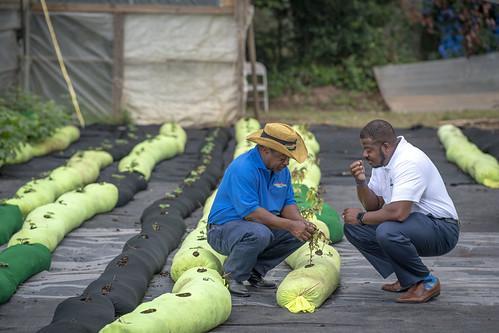
Atlanta is making waves in urban farming with its ambitious AgLanta initiative, which aims to build a resilient local food system. Urban farms and gardens are sprouting across the city, providing fresh produce to neighborhoods that were once food deserts.
According to Atlanta Magazine, Atlanta is also investing in cutting-edge technology like aquaponics and vertical farming. These efforts are creating jobs, improving food security, and positioning Atlanta as a leader in sustainable urban agriculture.
6. Paris, France
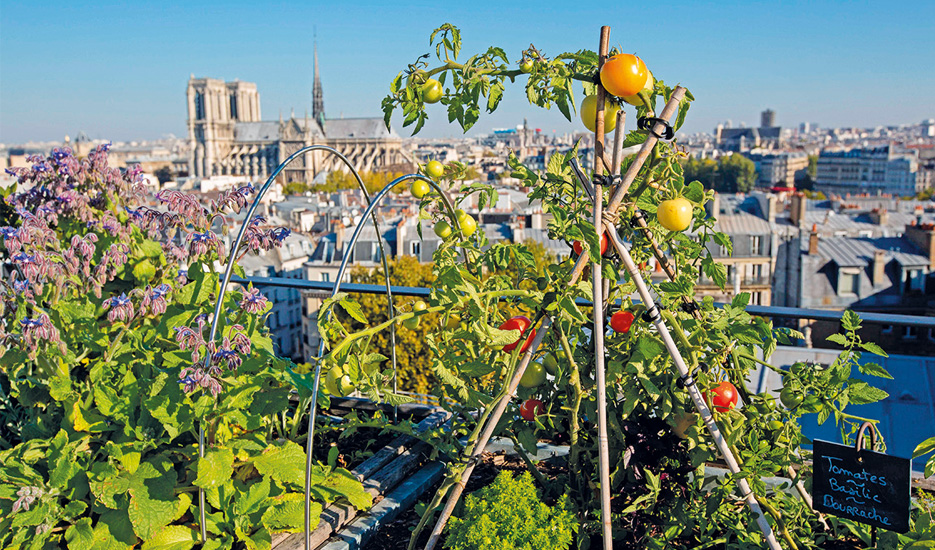
Known for its rich culinary heritage, Paris is embracing urban farming as a way to produce fresh, local ingredients. Rooftop farms like Le Paysan Urbain and La REcyclerie are growing everything from herbs to heirloom vegetables.
As noted by France 24, Paris has set a goal to green its rooftops and walls, dedicating a portion to agriculture. The city’s innovative approach is inspiring other global metropolises to rethink urban spaces.
7. Portland, Oregon
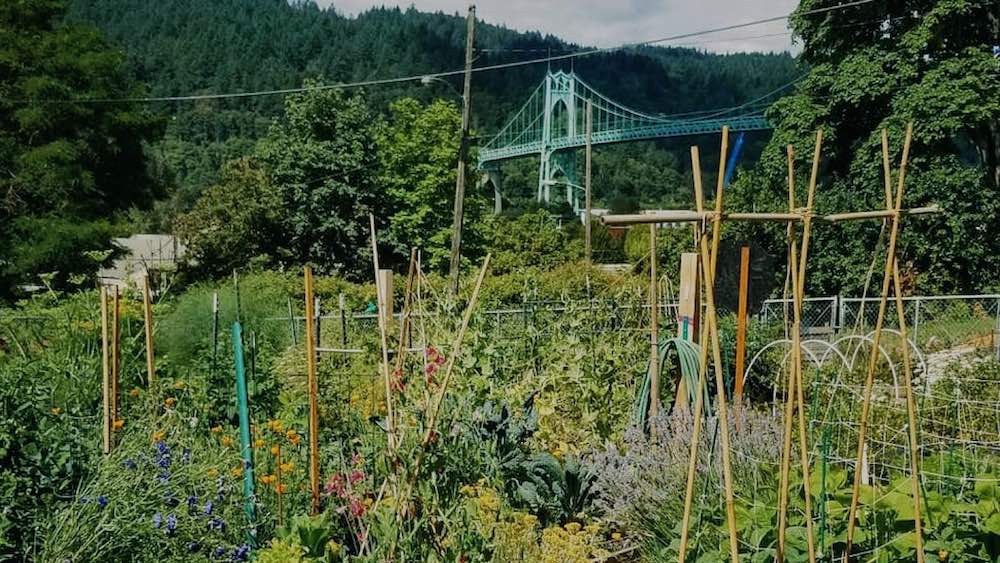
Portland’s commitment to sustainability is evident in its thriving urban farming scene. The city is home to numerous community gardens, urban farms, and farm-to-table initiatives. Programs like Zenger Farm provide education and access to locally grown food.
According to Oregon Live, Portland is also a pioneer in integrating urban farming with renewable energy, such as using solar panels on farms. This forward-thinking approach is cementing Portland’s status as a leader in green living.
8. Melbourne, Australia

Melbourne is leveraging its urban spaces to address food security and sustainability challenges. Rooftop gardens, community farms, and aquaponic systems are becoming increasingly popular in this vibrant city.
As reported by ABC Australia, Melbourne’s urban farming initiatives are supported by local policies encouraging green infrastructure. These efforts are making fresh, locally grown food more accessible to residents.
9. Chicago, Illinois

Chicago is transforming its urban landscape with projects like the Chicago Urban Agriculture Mapping Project, which tracks the city’s growing number of farms and gardens. Vertical farms like FarmedHere are producing fresh greens and herbs in repurposed warehouses.
According to Chicago Tribune, Chicago is also investing in sustainable agriculture research, positioning itself as a leader in urban farming innovation. These efforts are creating jobs, improving food security, and revitalizing neighborhoods.
10. Berlin, Germany
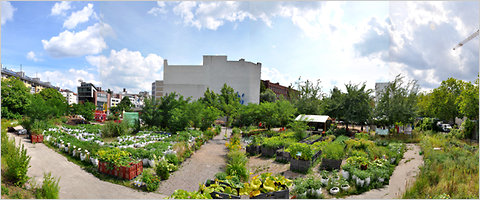
Berlin’s progressive approach to sustainability includes a robust urban farming movement. Projects like Prinzessinnengarten and ECF Farmsystems are combining traditional farming with modern technology to produce fresh, local food.
As noted by Deutsche Welle, Berlin’s urban farms are also fostering community engagement and education. The city’s innovative initiatives are inspiring other European capitals to follow suit.
11. Los Angeles, California

Los Angeles is addressing its food insecurity challenges through urban farming initiatives like LA Green Grounds and The Urban Homestead. These projects are turning underutilized spaces into productive agricultural hubs.
According to Los Angeles Times, LA is also investing in hydroponic and aeroponic technologies to maximize food production in limited spaces. The city’s commitment to sustainability is reshaping its urban landscape.
12. Seattle, Washington
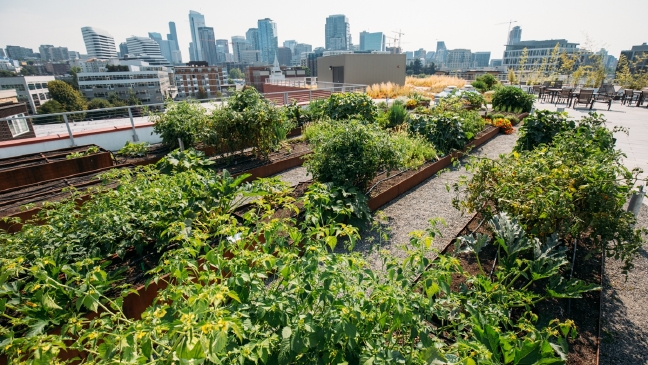
Seattle’s urban farming movement is rooted in community engagement and sustainability. Initiatives like P-Patch Community Gardens provide residents with access to fresh, locally grown produce.
As reported by The Seattle Times, the city is also exploring innovative solutions like rooftop farms and vertical gardens. Seattle’s efforts are creating a more sustainable and equitable food system for its residents.
13. Cape Town, South Africa

Cape Town is tackling food security and sustainability challenges through urban farming. Projects like Oranjezicht City Farm are turning vacant lots into thriving agricultural spaces.
According to Cape Town Etc, Cape Town is also embracing aquaponics and hydroponics to maximize food production in limited spaces. The city’s innovative approach is making fresh, healthy food more accessible to its residents.
